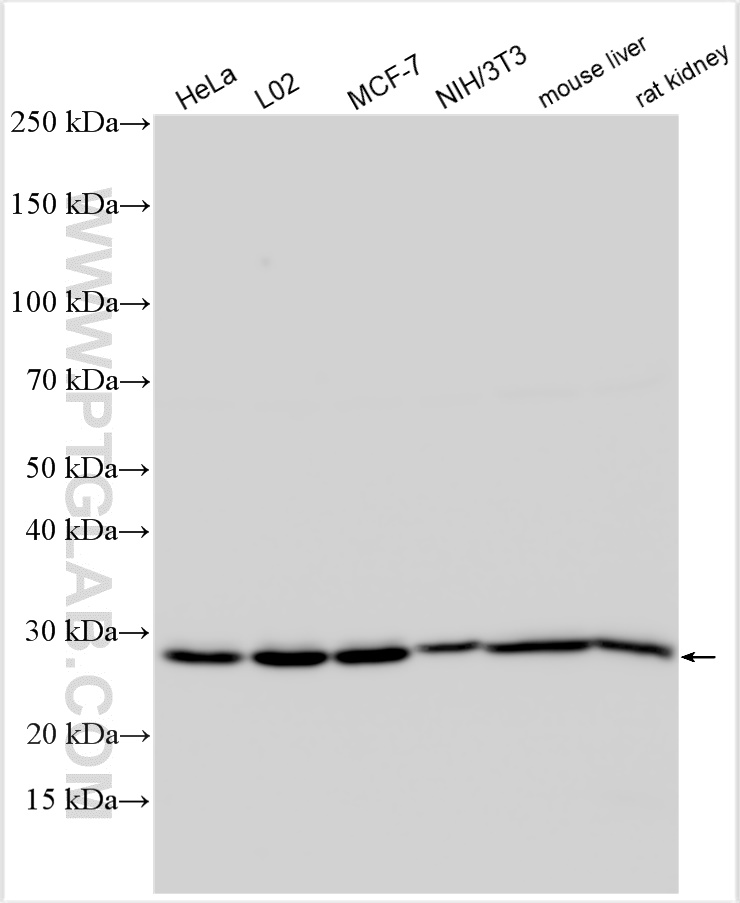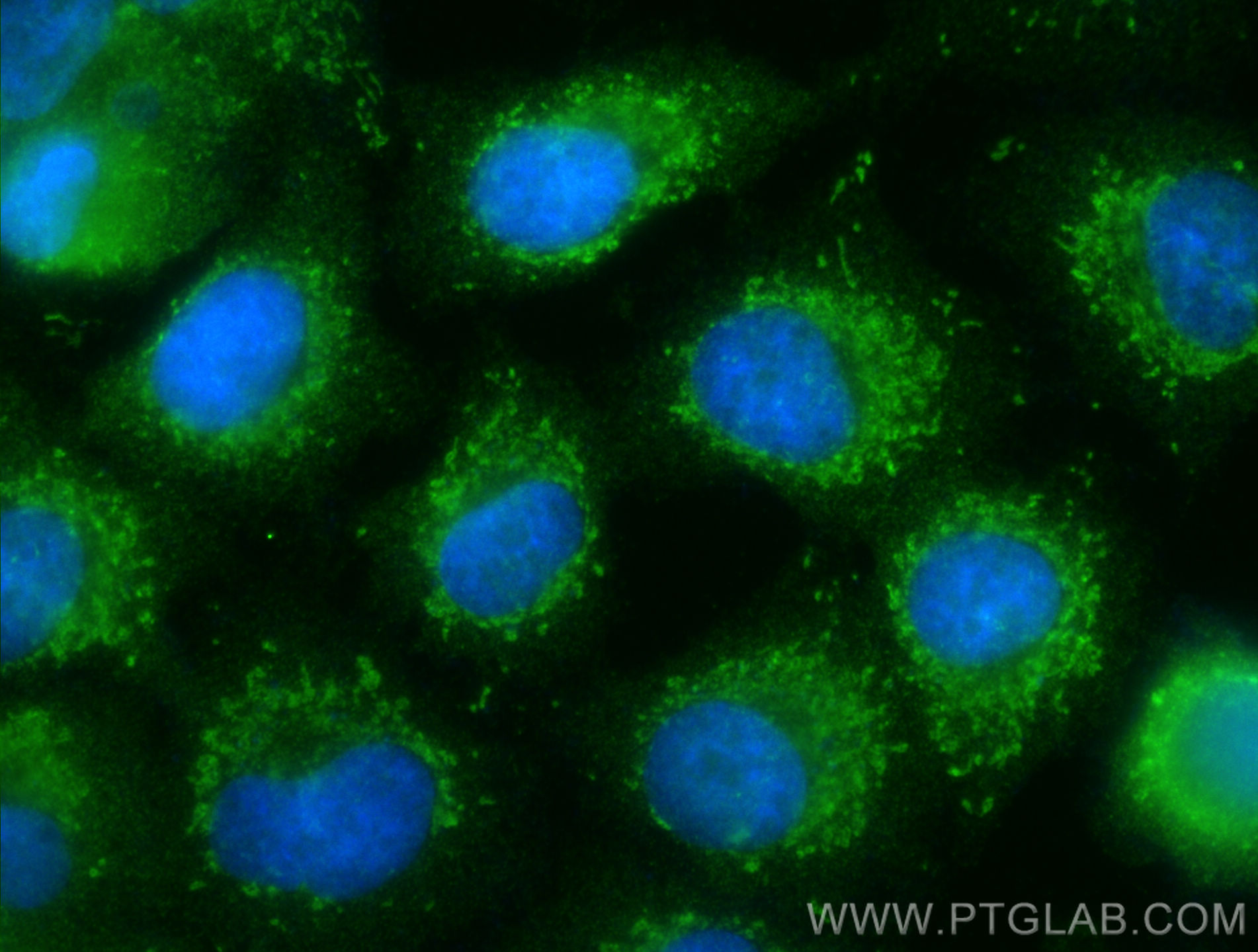验证数据展示
经过测试的应用
| Positive WB detected in | HeLa cells, L02 cells, MCF-7 cells, NIH/3T3 cells, mouse liver tissue, rat kidney tissue |
| Positive IF/ICC detected in | A549 cells |
推荐稀释比
| 应用 | 推荐稀释比 |
|---|---|
| Western Blot (WB) | WB : 1:5000-1:50000 |
| Immunofluorescence (IF)/ICC | IF/ICC : 1:200-1:800 |
| It is recommended that this reagent should be titrated in each testing system to obtain optimal results. | |
| Sample-dependent, Check data in validation data gallery. | |
产品信息
32022-1-AP targets NAXE in WB, IF/ICC, ELISA applications and shows reactivity with human, mouse, rat samples.
| 经测试应用 | WB, IF/ICC, ELISA Application Description |
| 经测试反应性 | human, mouse, rat |
| 免疫原 | NAXE fusion protein Ag35306 种属同源性预测 |
| 宿主/亚型 | Rabbit / IgG |
| 抗体类别 | Polyclonal |
| 产品类型 | Antibody |
| 全称 | apolipoprotein A-I binding protein |
| 别名 | NAD(P)H-hydrate epimerase, EC:5.1.99.6, Apolipoprotein A-I-binding protein, APOA1BP, AI-BP |
| 计算分子量 | 32 kDa |
| 观测分子量 | 29 kDa |
| GenBank蛋白编号 | NM_144772.2 |
| 基因名称 | APOA1BP |
| Gene ID (NCBI) | 128240 |
| RRID | AB_3670173 |
| 偶联类型 | Unconjugated |
| 形式 | Liquid |
| 纯化方式 | Antigen affinity Purification |
| UNIPROT ID | Q8NCW5 |
| 储存缓冲液 | PBS with 0.02% sodium azide and 50% glycerol , pH 7.3 |
| 储存条件 | Store at -20°C. Stable for one year after shipment. Aliquoting is unnecessary for -20oC storage. |
背景介绍
NAD(P)H-hydrate epimerase (NAXE, also known as AIBP, YJEFN1, and APOA1BP) catalyzes the interconversion between the S- and R-forms of NAD(P)HX, and essentially supplies the substrate for the stereospecific enzyme NAD(P)HX dehydratase (NAXD) (PMID: 35866541). NAXE variants can cause neurometabolic disorder by disrupting the cellular NAD(P)HX repair system (PMID: 31745726; 27616477).
实验方案
| Product Specific Protocols | |
|---|---|
| WB protocol for NAXE antibody 32022-1-AP | Download protocol |
| IF protocol for NAXE antibody 32022-1-AP | Download protocol |
| Standard Protocols | |
|---|---|
| Click here to view our Standard Protocols |

